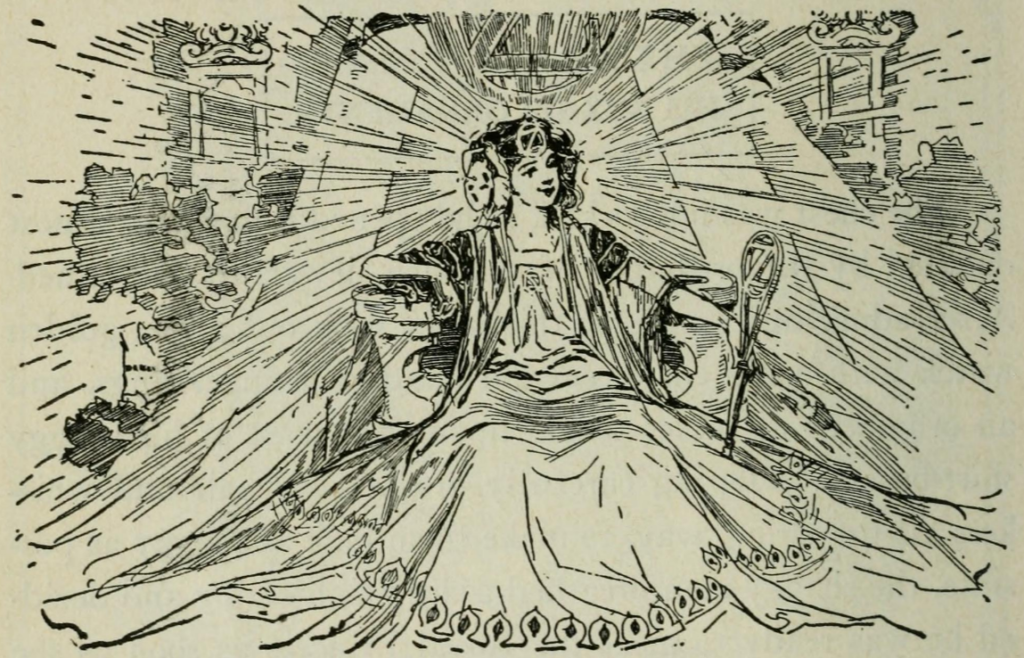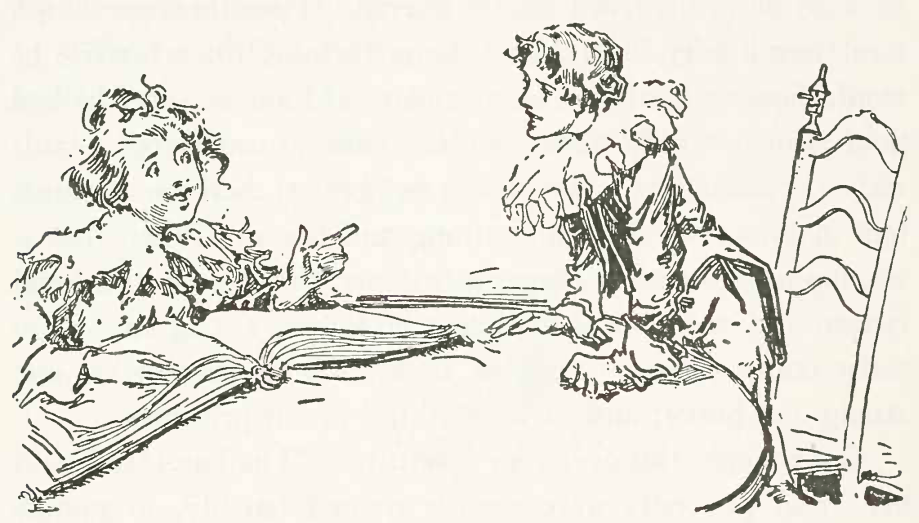The legitimacy of power in Oz stems from mutual love enshrined in metaphorical kinship ties between ruler and subject. Good rulers, in Baum’s stories, are those who keep their subjects satisfied and who rule by consent. The people are Ozma’s “children,” whom she “[cares] for” (Emerald City 30). The series furnishes ample evidence of the love and devotion the Ozites have for Ozma:
“The Wonderful Wizard was never so wonderful as Queen Ozma,” the people said to one another, in whispers; “for he claimed to do many things he could not do; whereas our new Queen does many things no one would ever expect her to accomplish.” (Marvelous Land 285)
Everywhere the people turned out to greet their beloved Ozma. (Ozma of Oz 256)
And now they came in sight of the Emerald City, and the people flocked out to greet their lovely ruler. […] Thus the beautiful Ozma was escorted by a brilliant procession to her royal city, and so great was the cheering that she was obliged to constantly bow to the right and left to acknowledge the greetings of her subjects. (ibid. 258)
Everything about Ozma attracted one, and she inspired love and the sweetest affection rather than awe or ordinary admiration. (Road to Oz 204)
They [the people of Oz] were peaceful, kind-hearted, loving and merry, and every inhabitant adored the beautiful girl who ruled them, and delighted to obey her every command. (Emerald City 31–32)
A similar order prevails for Ozma’s subordinate rulers in the individual countries of Oz. The Wicked Witch of the West rules the Winkies through terror, using the people as her slaves. After her death, the Tin Woodman becomes the Emperor of the Winkies not through coercion or hereditary power but because “they invited him to rule over them” for his role in defeating her (Marvelous Land 121–122). Baum is concise: “Every one loved him, and he loved every one” (Road 164).

Wagner claims there is no coercive authority in Oz. While Ozma maintains a military, they are a mere twenty-seven people, adults pretending to be soldiers by dressing in military uniforms. A single infantryman, Omby Amby, is present in the first three novels, but his subsequent promotion means that the Emerald City military cannot execute violence. Afterward, Omby Amby becomes the single policeman in Oz instead. For Oz does have crime and punishment.
The Patchwork Girl furnishes an example of the legal system when Omby Amby (probably—his identity is inconsistent) arrests Ojo. Baum emphasizes this is extraordinary. Ojo is the first person arrested in Oz in “a good many years” (188), long enough that Omby Amby believed there was no reason for him to be the country’s only policeman. As stated in Dorothy and the Wizard in Oz, crime almost never occurs: “the people of that Land [Oz] were generally so well-behaved that there was not a single lawyer amongst them, and it had been years since any Ruler had sat in judgment upon an offender of the law” (237). Presumably, self-actualized and with their material needs satisfied, few people in Oz have any reason for crime, at least in the portions aligned with Ozma rather than “uncivilized” regions such as Jinxland.
The system that exists is humane. The prisoner’s identity is hidden from the public so that his reputation will not be damaged, and the prison itself is a luxurious house plated with gold and gemstones. Ojo receives lovelier meals than many impoverished people in the US, and the jailer, Tollydiggle, is more a kindly innkeeper than a guard. “The purpose of prison” in Oz, writes Wagner, is not “vengeance” as in the US but “helping the offender to build strength of character” (11). Ojo requires scant rehabilitation before his trial, where Ozma and the Wizard quickly find him guilty on the basis of their surveillance but pardon him no less swiftly. Ozma and Glinda maintain the peace through nonviolent means.

Furthermore, mercy and forgiveness are recurring valued traits. The good Ozites forgive not only minor offenders such as Ojo and Pipt but even seditious, dangerous enemies. Ozma spares Mombi’s life despite the years of abuse she personally endured as the latter’s slave, for instance, and Dorothy accepts Ugu’s heartfelt apology for his coup in The Lost Princess of Oz. While Oz has rulers, then, they do not possess or exercise coercive authority. “Ozma’s decision-making power rests literally and absolutely in carrying out the will of the people. Embedded in a truly egalitarian system, power comes from the people; it is not exercised over them. Respect for differences is a given” (Wagner 10).